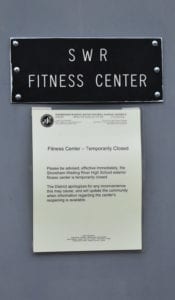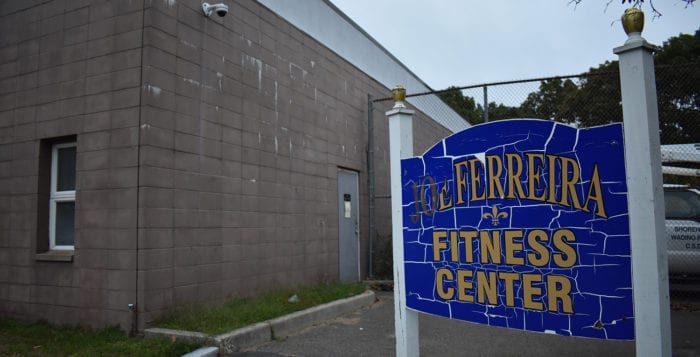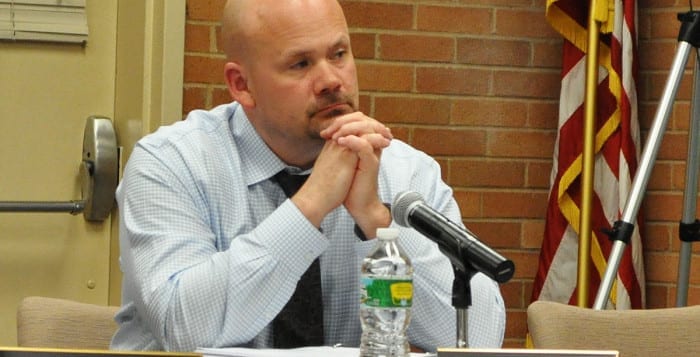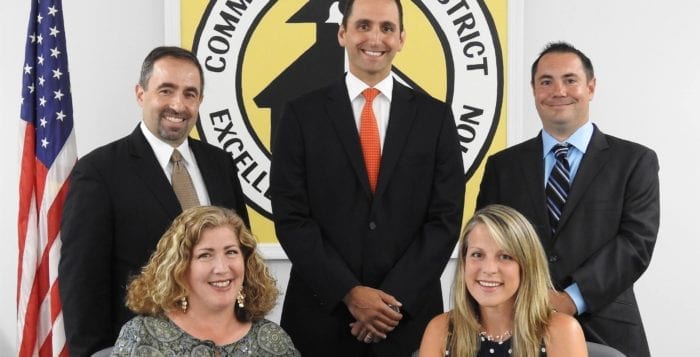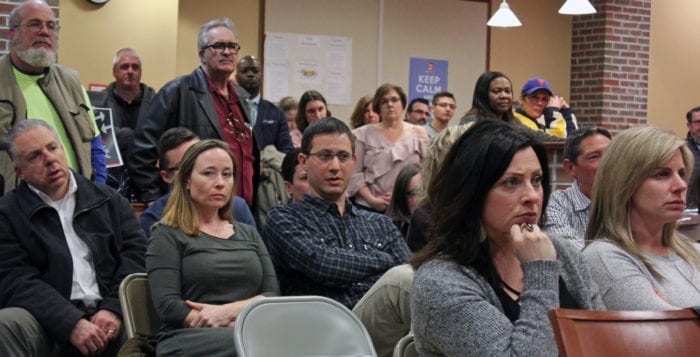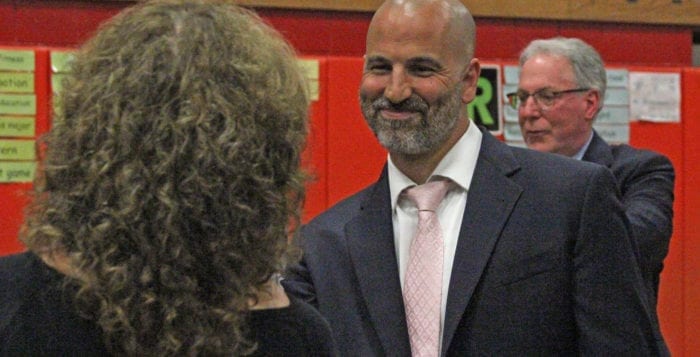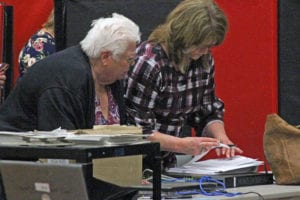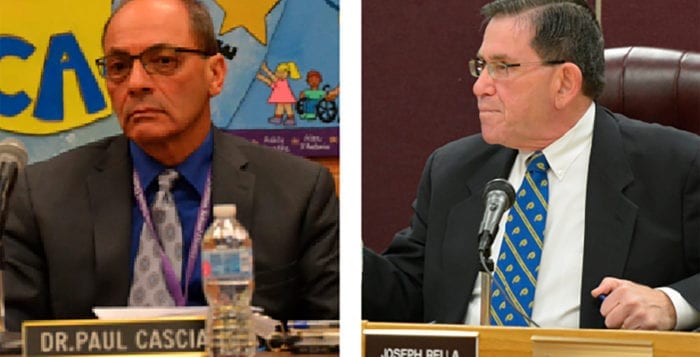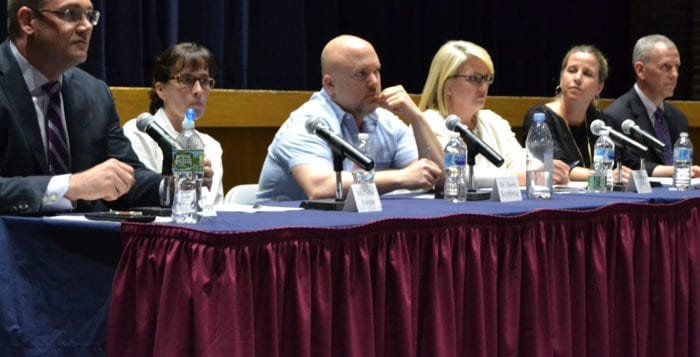The evening of May 15 was a good one for school boards across New York State, as residents cast their ballots overwhelmingly in favor of district budgets.
According to the New York State School Boards Association, the new state budget delivered a school aid increase of $859 million despite a tight fiscal year. Besides general spending plans and even with some new programs and club offerings, all of our North Shore districts have kept any projected tax levy increases within the state mandated limit. The biggest challenge with budgets this year was meeting most of parents’ and students’ concerns regarding school safety. Some districts had to shift funds around to allocate spending for additional security guards, entrance vestibules and bulletproof glass windows, among other ideas to make sure students and staff are protected and feel safe.
Here’s how school district budget votes on the North Shore of Suffolk County went:
Commack
Voters chose to approve the $193,222,797 proposed Commack budget with 1203 yes votes to 419 no.
Current board of education Vice President Jarrett Behar ran unopposed and received 1,302 votes.
Comsewogue
Comsewogue residents voted 829 yes to 263 no in favor of the proposed $91,947,730 budget. John Swenning, Rick Rennard and Corey Prinz ran unopposed and garnered 901, 818 and 769 votes, respectively. Louise Melious did not seek re-election. A proposition was also approved 768-315 to authorize a $32-million bond proposal for upgrades in all six schools in the district.
Elwood
Elwood’s $61,606,082 budget passed by a vote of 896 to 327. Proposition 2, the establishment of a capital reserve fund, passed by a vote of 854 to 345. Heather Mammolito (918) and James Tomeo (983) were both reelected to the board of education.
“On behalf of the entire administration and board of education, I would like to thank all residents who voted in support of the proposed 2018-19 budget” Elwood Superintendent Ken Bosset said. “Your support will allow the district to continue to enhance our academic program for our students, as well as increase security throughout the district. We are continually grateful to the Elwood community for its support of our district.”
Harborfields
Members of the district voted 966-275 to pass the proposed $86,086,696 budget. Steve Engelmann (862), Joseph Savaglio (744) and Suzie Lustig (949) were all elected to the board of education. Incumbents Donald Mastroianni and Thomas McDonagh did not seek re-election.
“I would like to thank the entire Harborfields community for its support of the 2018-19 budget, as well as the board of education for its commitment to providing the best opportunities possible for district students,” Harborfields Superintendent Francesco Ianni said. “The community’s continued support of the district allows us to provide a ‘world-class’ education to the children of our community. We look forward to implementing several enhancements to the curriculum for next year, including the restructuring of the high school science research program and a new literacy curriculum. In addition, the proposed budget will allow us to enhance security throughout the district. The community’s input was vital to the creation of this budget, so I thank those residents who participated throughout the process and those who took the time to vote.”
Huntington
Huntington’s board of education put forth a proposed $129,812,991 that was passed 1,215 to 314.
Proposition 2, which asked Huntington residents to approve the release of about $7 million from the district’s capital reserves fund for critical infrastructure repairs, was passed with 1,293 yes votes to 209 no.
Proposition 3, which sought to create a new building improvement fund that the district said is necessary in order to transfer money from the district’s existing repair reserve that will be used for turf field replacement, was also passed 1,260-238.
Huntington board of education trustees Christine Biernacki, receiving 1,029 votes, and Thomas DiGiacomo, receiving 898 votes, were re-elected to another term. Lynda D`Anna received 816 and will take over the seat currently held by trustee Emily Rogan July 1, as she did not seek re-election.
Kings Park
The Kings Park community passed its $92,168,700 proposed budget with 1,189 yes votes to 550 no.
“This community is very supportive of education and the job that we’ve done here in Kings Park,” Kings Park Superintendent Timothy Eagen said. “It’s a very supportive budget, and we have some strategic adds and supports in the budget. I’m just really happy that we can go forward with the spending plan that the board of education and I have carefully developed over the last couple of months.”
Incumbents Diane Nally and Kevin Johnston won their board of education trustee seats back, with 1,281 and 1,383 votes, respectively. Challenger Darryl Valinchus tallied 530 votes.
Johnston expressed some disappointment regarding low turnout at board meetings
“We would like to have more input from people in the community,” he said as polls closed. “This is a $92 million budget we’re talking about, and very few people show up for the school board meetings. I think over the last few years with Diane [Nally] we’ve accomplished a great deal providing for the students in Kings Park, but we still have a ways to go.”
Middle Country
Resident overwhelmingly passed the district’s $250,124,601 budget, 1,438-495. In an uncontested board of education trustee election, Kathleen Walsh, Arlene Barresi, Karen Lessler and Daniel Hill won their seats back, with 1,467, 1,408, 1,398 and 1,372 votes, respectively.
Miller Place
Voters in the district passed the $72,685,864, 616-209. Keith Frank ran unopposed, and won his second three-year term with 688 votes.
Mount Sinai
The $60,203,745 budget was passed by residents, 769 to 193 and the library 1,111 to 144. A proposition transferring $5 million from unassigned fund balance to the capital fund passed 787-176, and a proposition to transferring money from fund balances to establish $10 million capital reserve fund passed 761-199.
Trustee Michael Riggio was re-eleccted to serve a second term with 747 votes, and newcomer Stephen Koepper earner 651 votes. Koepper ran unopposed after board President Lynn Capobianco decided not to run again.
Northport-East Northport
Northport-East Northport residents said “yes, yes, yes” to all three propositions.
The $166,810,381 proposed budget passed with 2,287 in favor and 754 against.
Proposition 2, which asked voters to approve the release of $900,000 from the district’s capital reserve funds for infrastructure upgrades and repair, also passed 2,524-555.
Proposition 3, which will establish a new Capital Reserve III Fund that the board says is necessary for several critical infrastructural improvements including roof replacements of its buildings, window replacement, bathroom replacement, masonry and concrete work, floor replacement, wall replacement, classroom renovations, library and multimedia center renovations and gym reconstruction, among other projects, was also met with voter approval, with 2,403 in favor and 696 against.
Incumbent David Stein and challenger Victoria Buscareno were elected to serve for three years, and incumbent David Badanes was elected for two years. This staggering the terms of board members is due to a proposition two years ago that reduced the number of board members from nine to seven. Stein received 2,173 votes, and Buscareno received 2,195, and Badanes earned 1,915 votes. Trustee Tammie Topel chose not to run again. Challenger Thomas Loughran did not receive enough votes.
Port Jefferson
Community members passed the $43,889,812 proposed budget 774–362. A proposition for a partial roof replacement at the high school also passed, 874 – 257. In a six-way race for three board of education seats, Ryan Walker (660), Rene Tidwell (649) and Tracy Zamek (604) won seats. Ryan Biedenkapp, Jason Kronberg and Mia Farina lost, with 481, 369 and 276 votes, respectively.
Rocky Point
Rocky Point residents voted to pass the $86,128,785 budget with 499 yes votes to 226 no.
“Voter turnout was a little low,” Rocky Point Superintendent Michael Ring said. “Most come out to vote after 5 p.m. Thankfully enough came out.”
Although running uncontested, incumbent Ed Casswell and newcomer Gregory Amendola were elected to the board of education, receiving 551 and 571 votes, respectively.
“We have a great board of education — its going to be a loss that [Vice President] Scott Reh is leaving, but Greg Amendola is going to be a great addition to the team,” said Casswell, who will be serving his second term. “With every budget cycle it’s a challenge to enhance and grow programs yet be very fiscally responsible. With that said we’re always looking for any college and career initiatives that will open up options for our kids.”
Shoreham-Wading River
Voters approved the $74,776,072 budget 790 for to 233 against.
It was a very low turnout compared to last year’s more than 2,000 that came out to vote. Current board of education President Robert Rose won his seat back with 772 votes. James Smith ran unopposed and nabbed 767. He will be taking the place of first-year trustee Michael Yannucci, who did not seek re-election.
Smithtown
The community passed the proposed $244,913,464 budget with 1,873 yes votes and 800 no.
Proposition 2 passed 2,090 to 583, which allow the district to use of $13.3 million from the district’s capital reserve, to fund specific projects.
Board newcomer and challenger Mandi Kowalik received 1,618 votes to unseat incumbent board of education trustee Christopher Alcure, who received 935. Incumbent Jeremy Thode was re-elected to his seat with 1,790 votes.
Three Village
Three Village residents voted 1,412 for to 536 against the proposed $209.8 million budget. With no challengers, incumbents William F. Connors Jr. and Deanna Bavlnka won their seats back with 1,553 and 1,482 votes, respectively.
